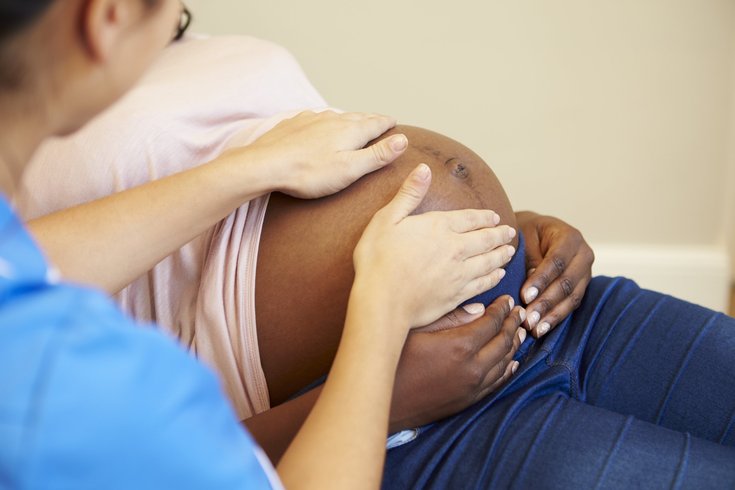
January 14, 2025
 Source/Image licensed from Ingram Image
Source/Image licensed from Ingram Image
Black mothers in Philadelphia are twice as likely as white mothers to experience unexpected, severe complications during delivery, a new report finds.
Black women in Philadelphia are twice as likely to have unexpected complications while giving birth than women of other races and ethnicities, according to a new report.
Severe maternal morbidity – unexpected outcomes during labor and delivery that result in short- or long-term health issues for the mother and her baby – "increased dramatically" in Philadelphia between 2016 and 2022, according to a report released Monday by the Philadelphia Department of Public Health.
The number of cases spiked particularly among Black mothers, mirroring nationwide trends. Factors contributing to disparities in maternal outcomes include differences in access to health care coverage, social and economic issues, and structural and systemic racism, research shows. Finding ways to reduce these disparities and improve maternal and infant health are important to improving overall public health, experts say.
"We shouldn't just be looking at the tragedy of people who have died," said Karen Pollack, executive vice president of programs and operations at the Maternity Care Coalition, a local organization that provides services to pregnant women and young families. "We also want to be looking at what are some of these near misses that also can have long-term consequences for pregnant people and for babies who are being born under these circumstances."
In 2016, Philadelphia had 70 cases of severe maternal morbidity per 10,000 deliveries, compared to 121 cases per 10,000 deliveries in 2022. Between 2016 and 2022, Philly had 1,247 cases – an average of 178 per year, according to the health department's report. This was down from an average of 462 cases between 2011 and 2014, but since 2018 the city's the severe maternal morbidity rate has been climbing again.
From 2016 to 2022, Black mothers accounted for 42% of all deliveries and had the highest rate of severe maternal morbidity compared to other groups: 118 cases per 10,000 deliveries. White mothers accounted for 30% of deliveries and had the lowest severe maternal morbidity rate, 63 cases per 10,000 deliveries.
Racial disparities were present among mothers with Medicaid and mothers with private health insurance. This finding suggests that differences in health insurance did not account for the disparities in severe maternal morbidity, according to the city's public health department.
Racial disparities have not shortened much since the four-year stretch between 2011 to 2014. A previous city report found the severe maternal morbidity rate for Black mothers during that period was about 26 per 1,000 deliveries compared to about 13 cases per 1,000 deliveries for white women.
The most recent report drew on statistics from insurance companies, but going forward, the health department will be able to use real-time data from labor and delivery hospitals through a surveillance program it launched in 2023. The program will help develop interventions for severe maternal morbidity and improve overall public health, according to the health department.
Chronic health problems such as hypertension, diabetes and obesity contributed to the rise in severe maternal morbidity, the report said. The "physical impact of experiencing racism" also has an "impact on health outcomes," Pollack added.
Data from the recently-launched surveillance program will help assess what interventions are working and other approaches to take, Pollack said.
Other findings showed that:
• People under 20 or over 35 had higher rates of severe maternal morbidity compared to those in their 20s and early 30s.
• Hospital deliveries that involved a severe maternal morbidity were two-to-three times more expensive than uncomplicated hospital deliveries.
Philly Joy Bank, developed by Philadelphia's Community Action Network, gives 250 pregnant residents $1,000 a month from the second trimester through one year after birth, as well as other forms of support such as visits from doulas and financial counseling. The health department also has a new campaign about the early warning signs of complications that can arise after giving birth.
The White House launched the Blueprint for Addressing the Maternal Health Crisis in 2022, which spurred, among other initiatives, a partnership between a division of the federal government and the March of Dimes to improve maternal health outcomes among Black mothers.